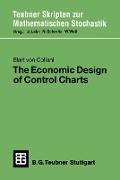- Start
- The Economic Design of Control Charts
The Economic Design of Control Charts
Angebote / Angebote:
In re cent years "Quality Control" has had a revival of al most incredible dimension. This revival is largely attribu table to the acknowledged success of Japanese products all over the world - success which is thought to be at least partly due to the socalled "Total Quality Control", Japanese Style" or "Company Wide Quality Control" philosophy. This Japanese way of quality control was developed chiefly by Dr. Kaoru Ishikawa and resembles in many aspects a spiritual movement. Ishikawa (1985) demands simultaneously the "best QC education to workers in the manufacturing divisions" and a "thought revolution in management". He defines quality control as follows: "To practice quality control is to deve lop, design, produce and service a quality product which is most economical, most useful, and always satisfactory to the consumer", i. e. quality control as enunciated by Ishikawa is very much related to an ethic of production. Hence Ishikawa calls Quality Control one of the basic objectives of a com pany and distinguishes strictly between Quality Control it self and its tools which are divided into two categories, proper techniques and (statistical) control techniques. This book deals with the latter, applying Ishikawa's general ideas to a small but nevertheless important facet of Total Quality Control. Consider a situation in which one must choose between seve ral different pieces of technical equipment all designed to produce the same end product. Generally the procedure where by adecision is reached consists of two steps.
Folgt in ca. 5 Arbeitstagen
